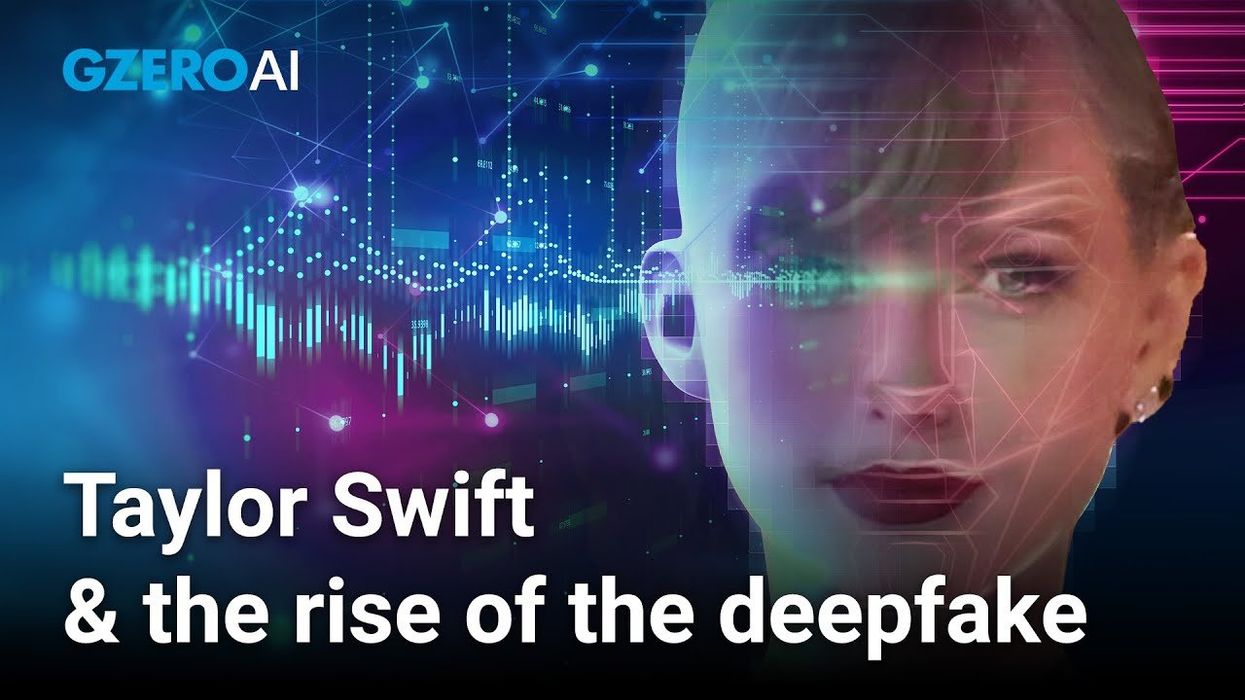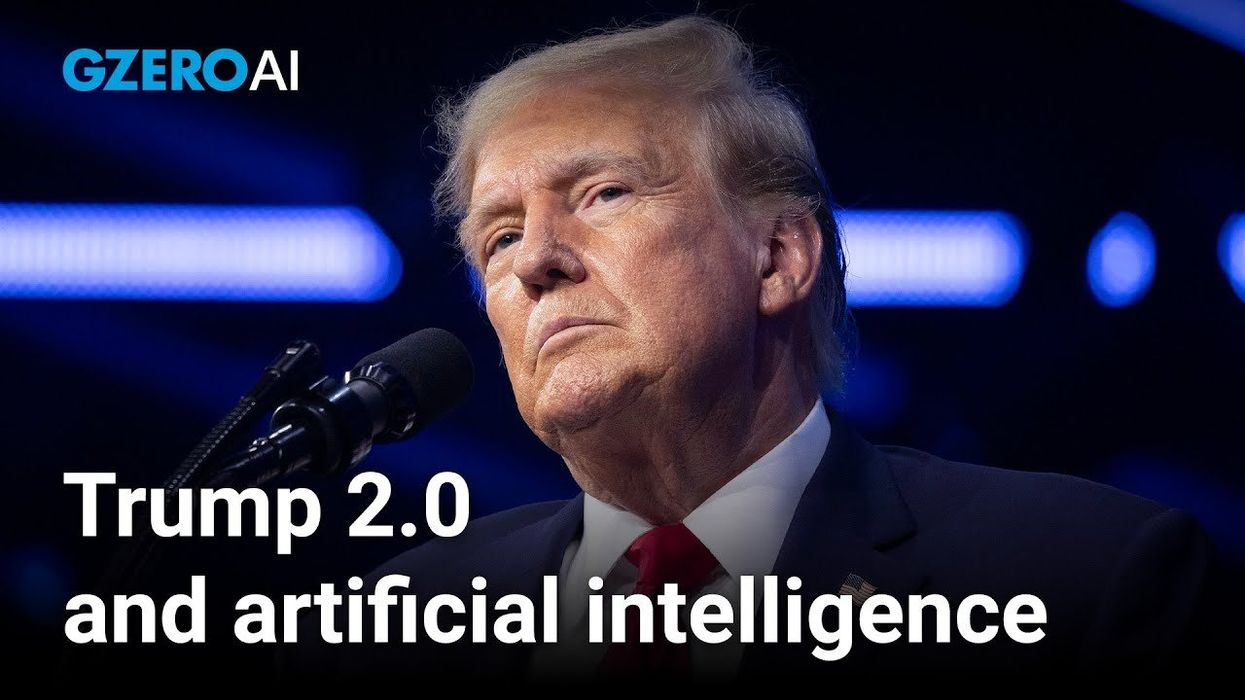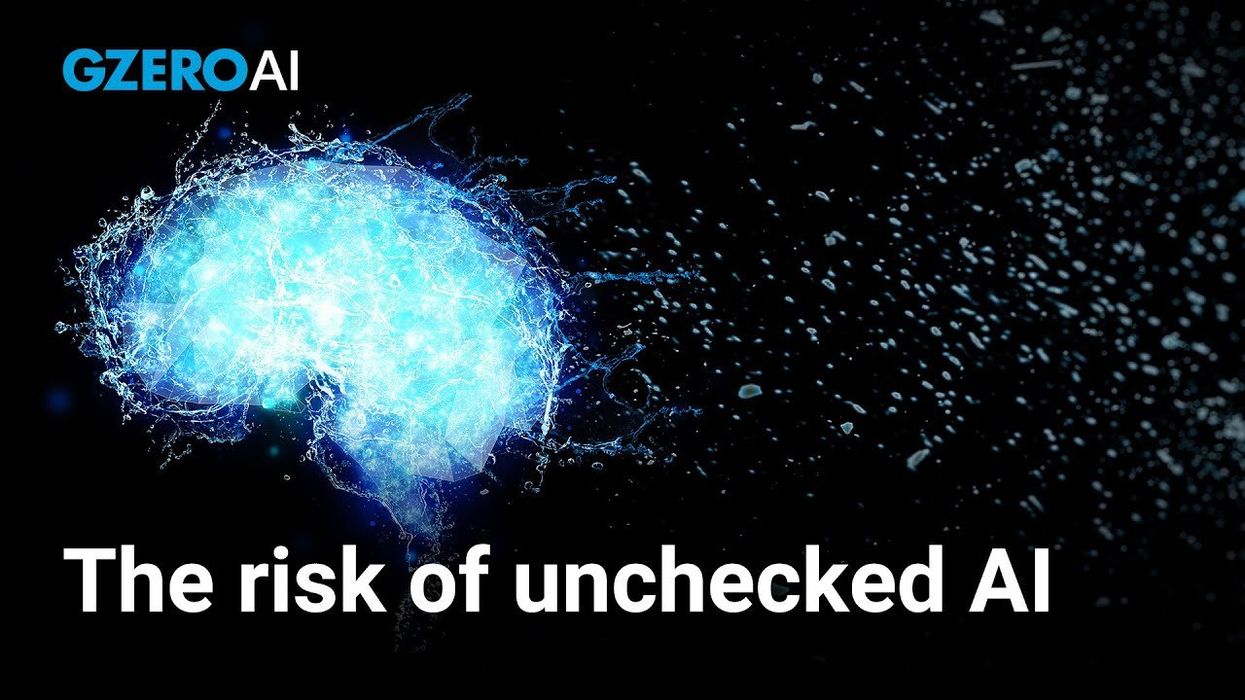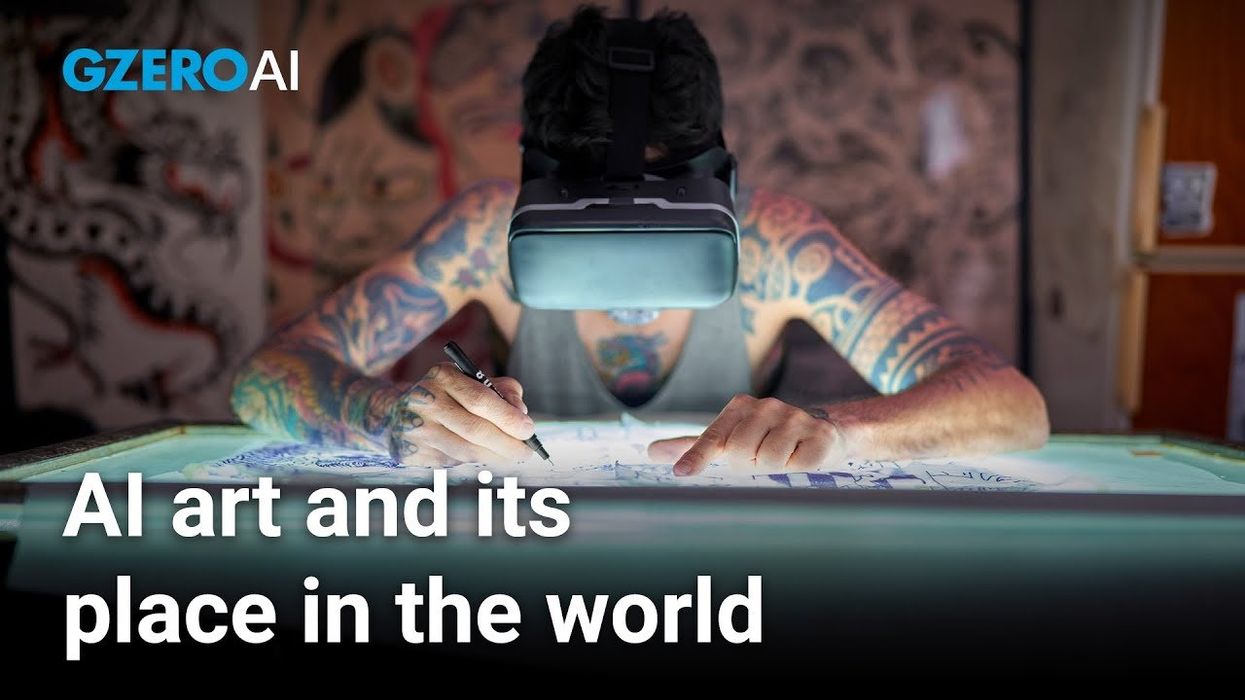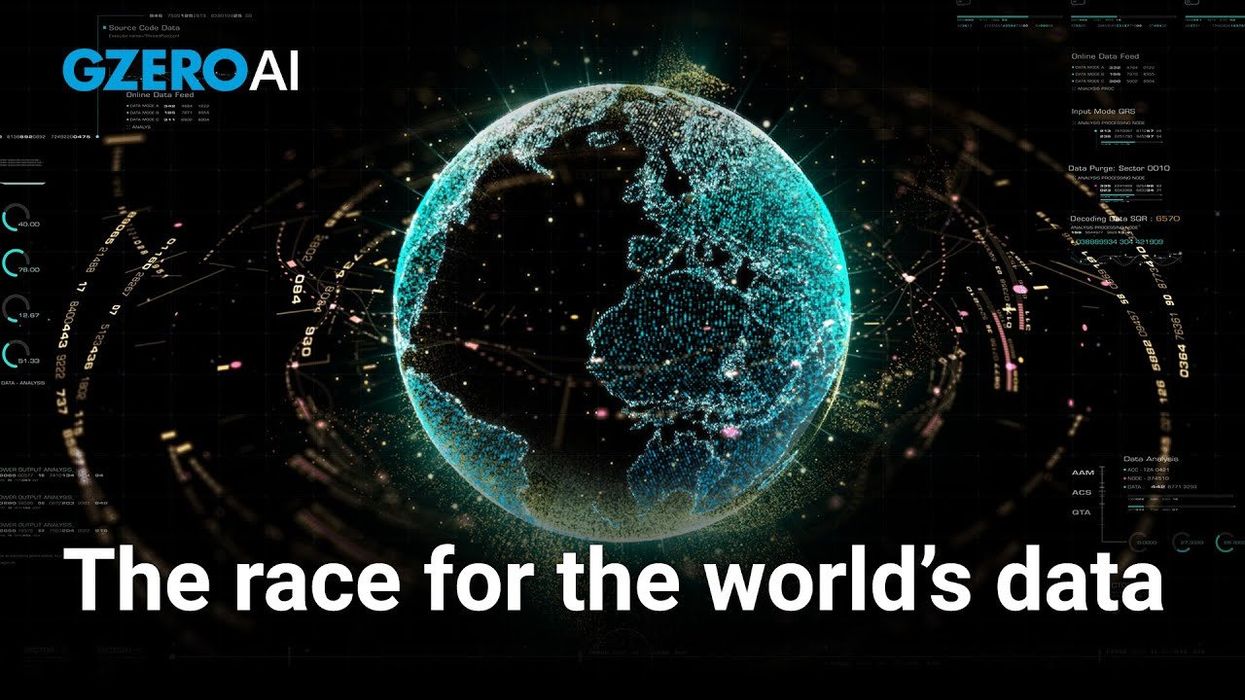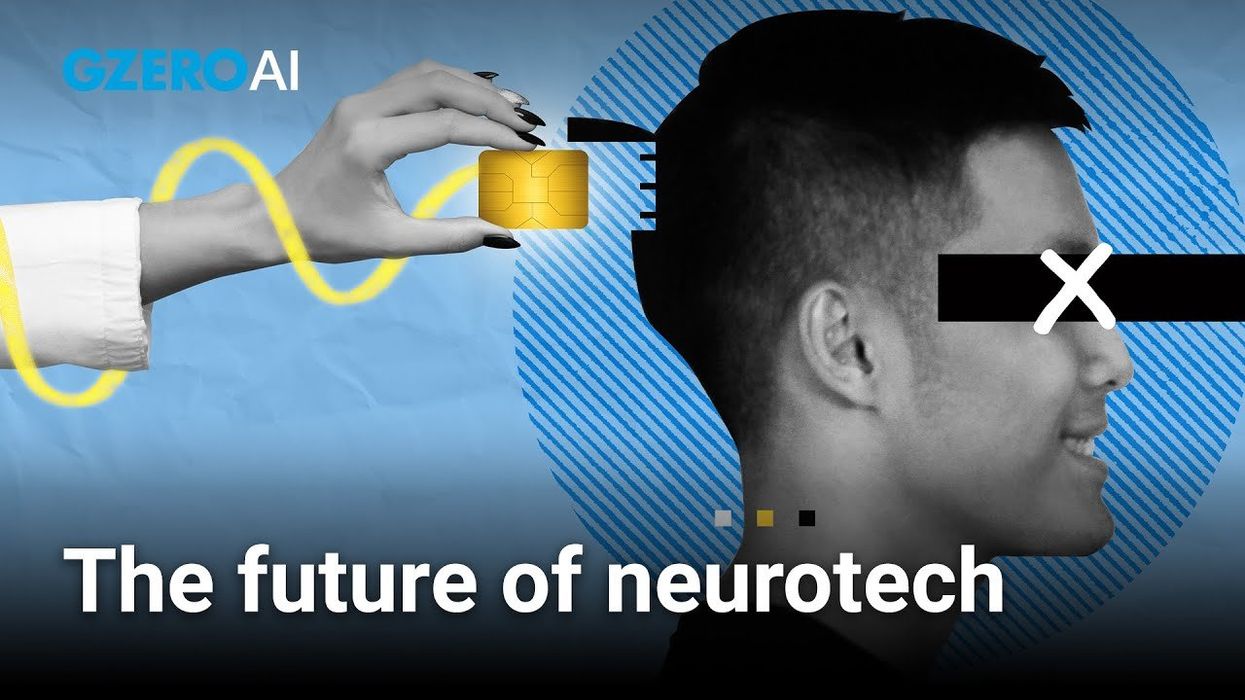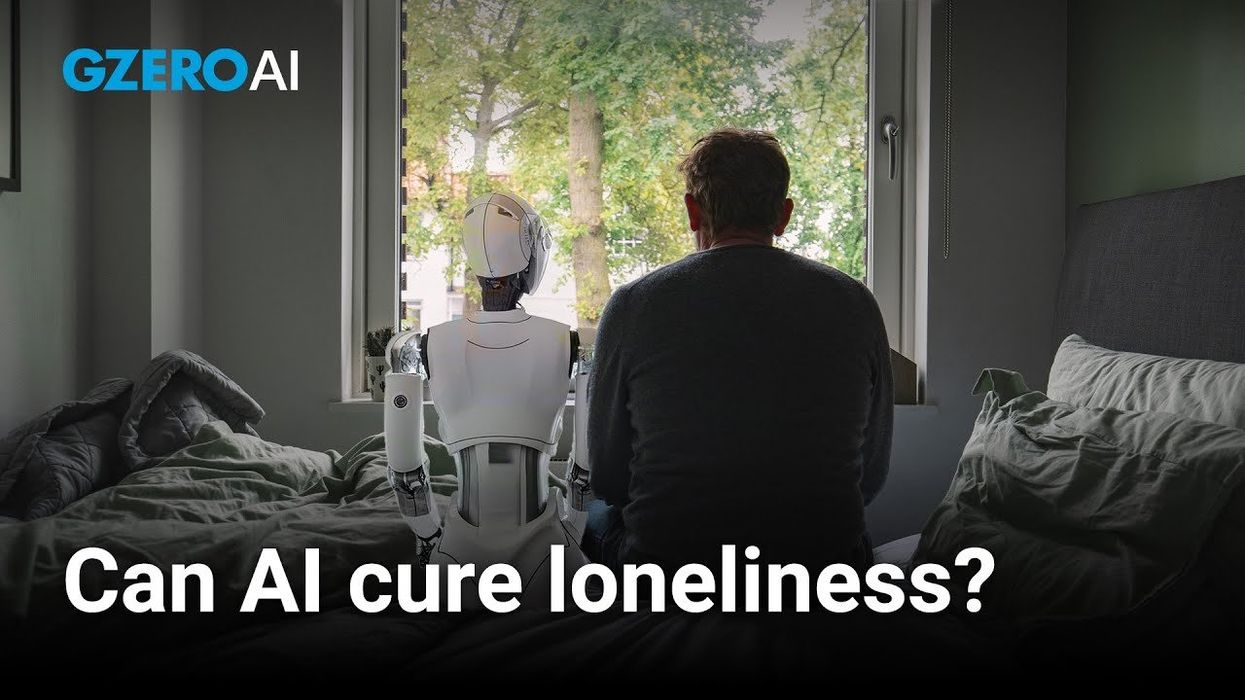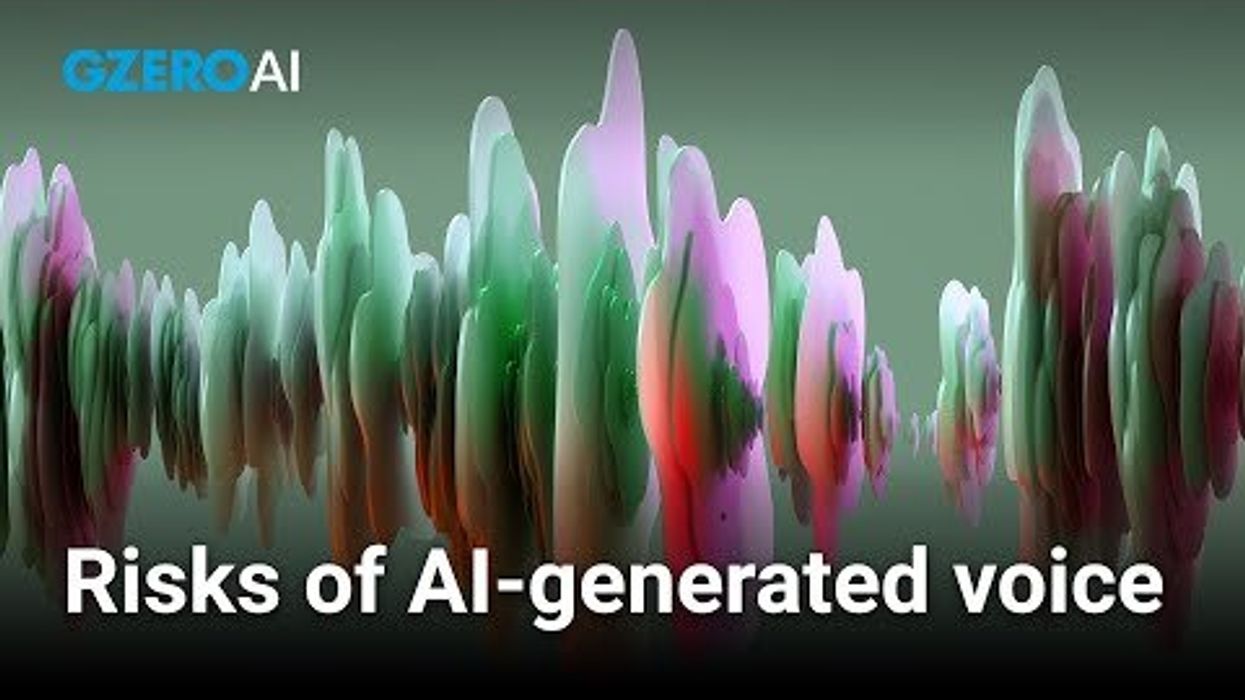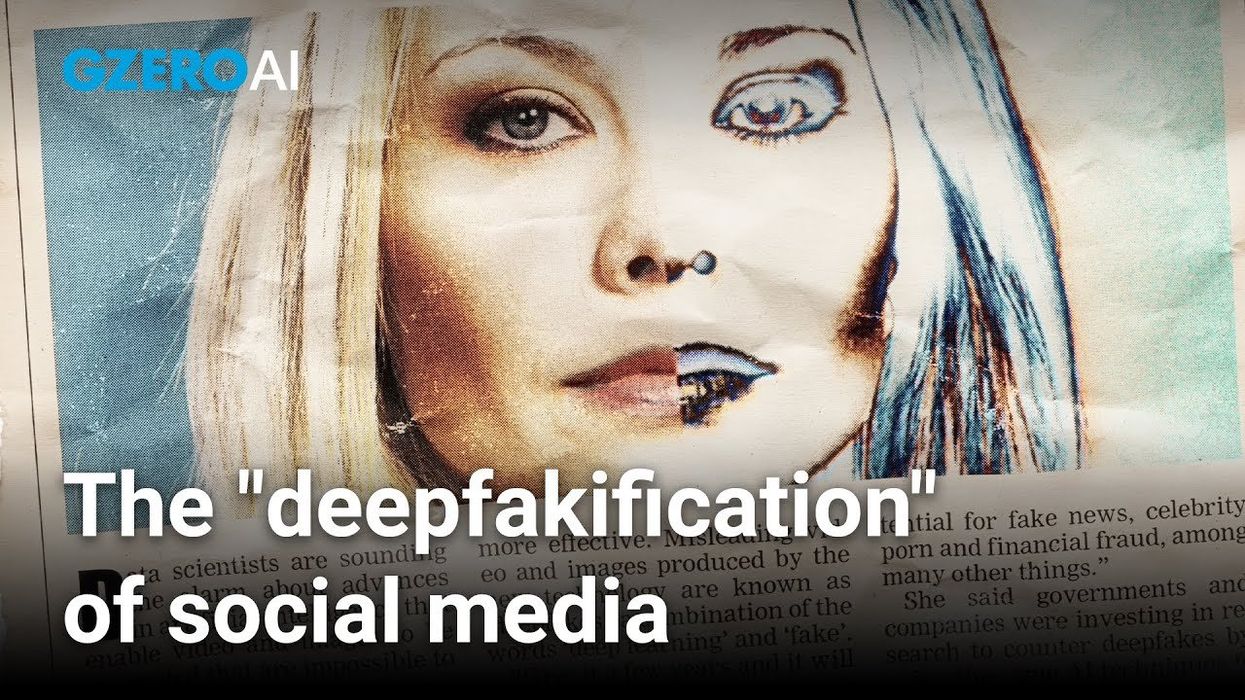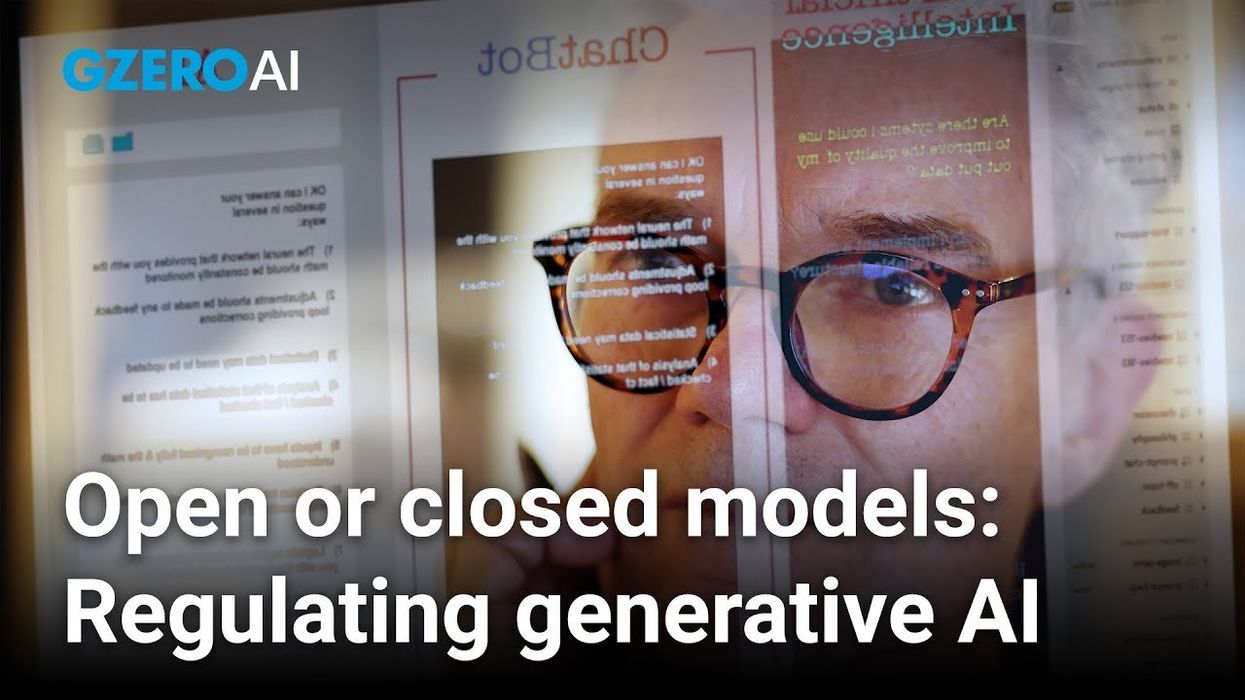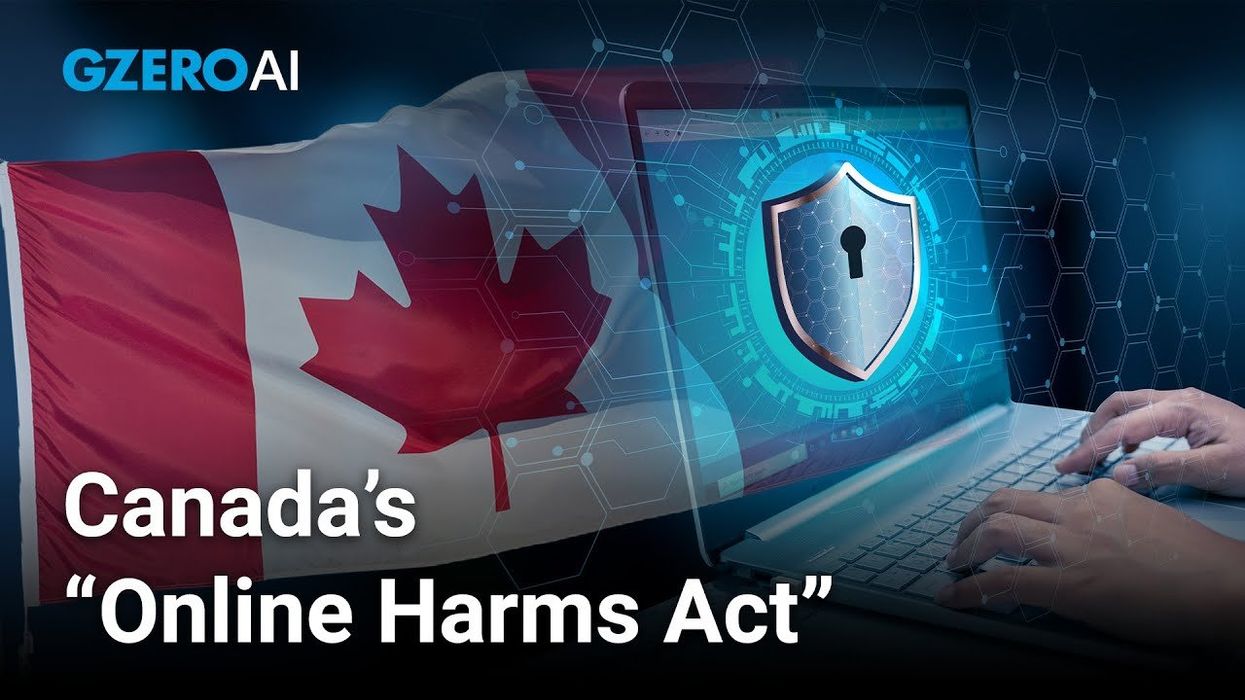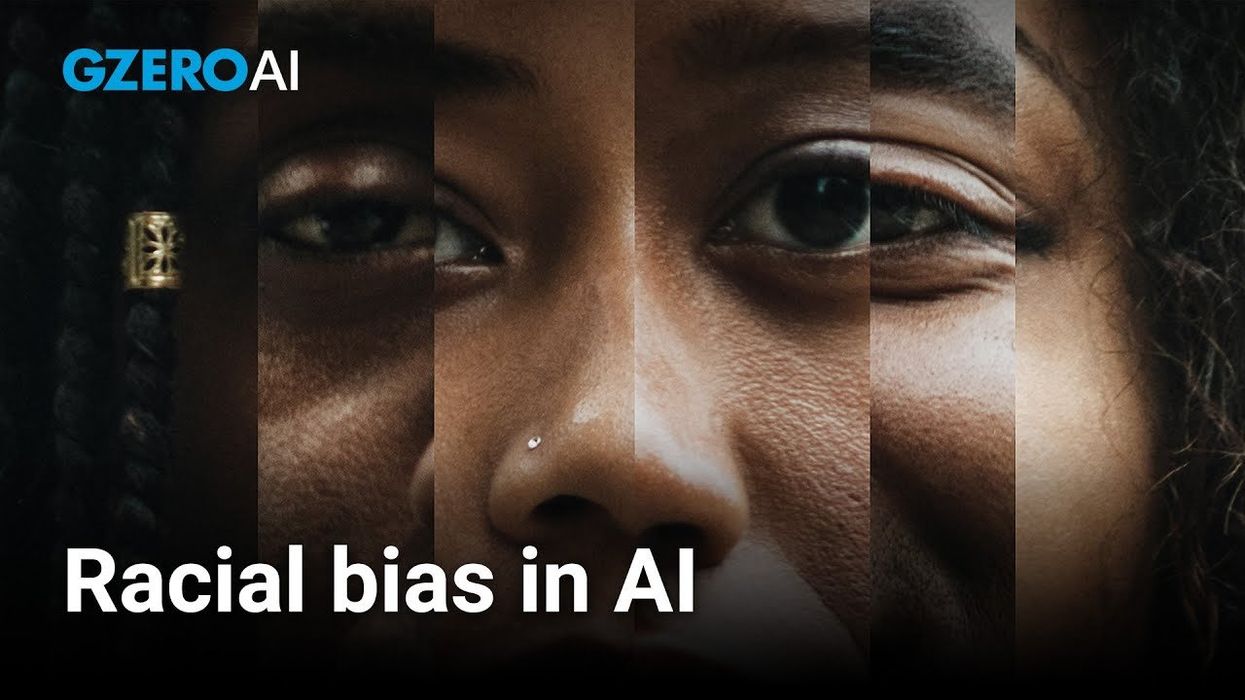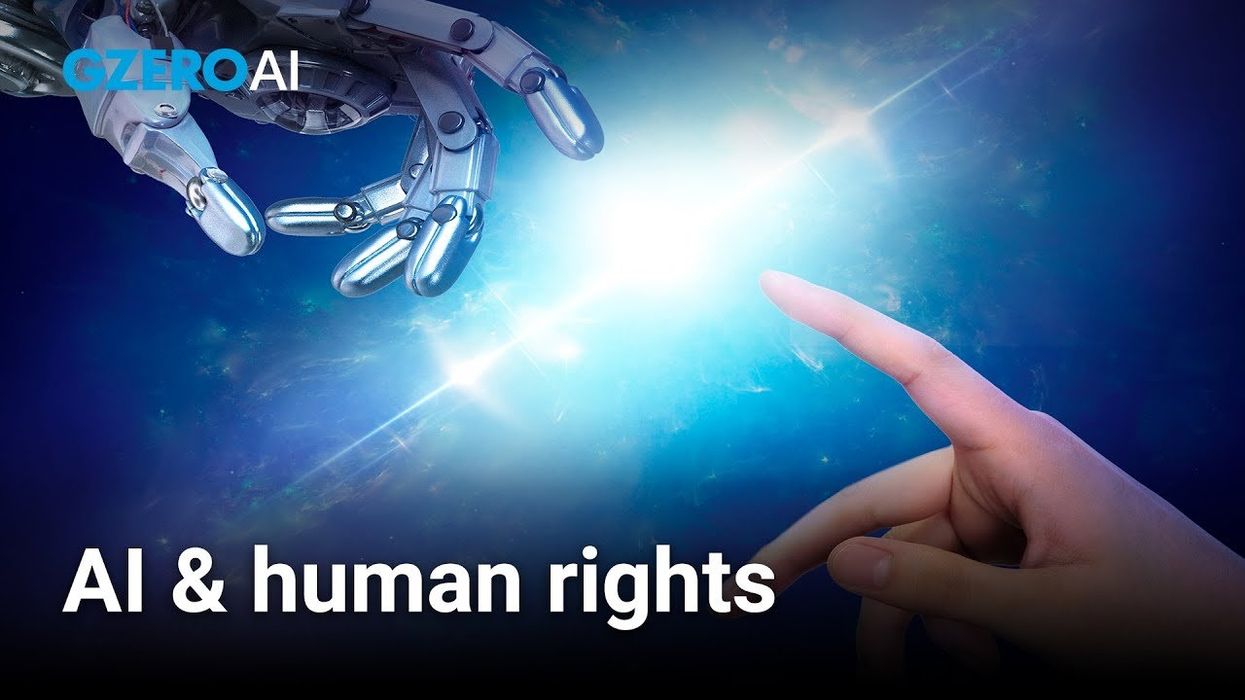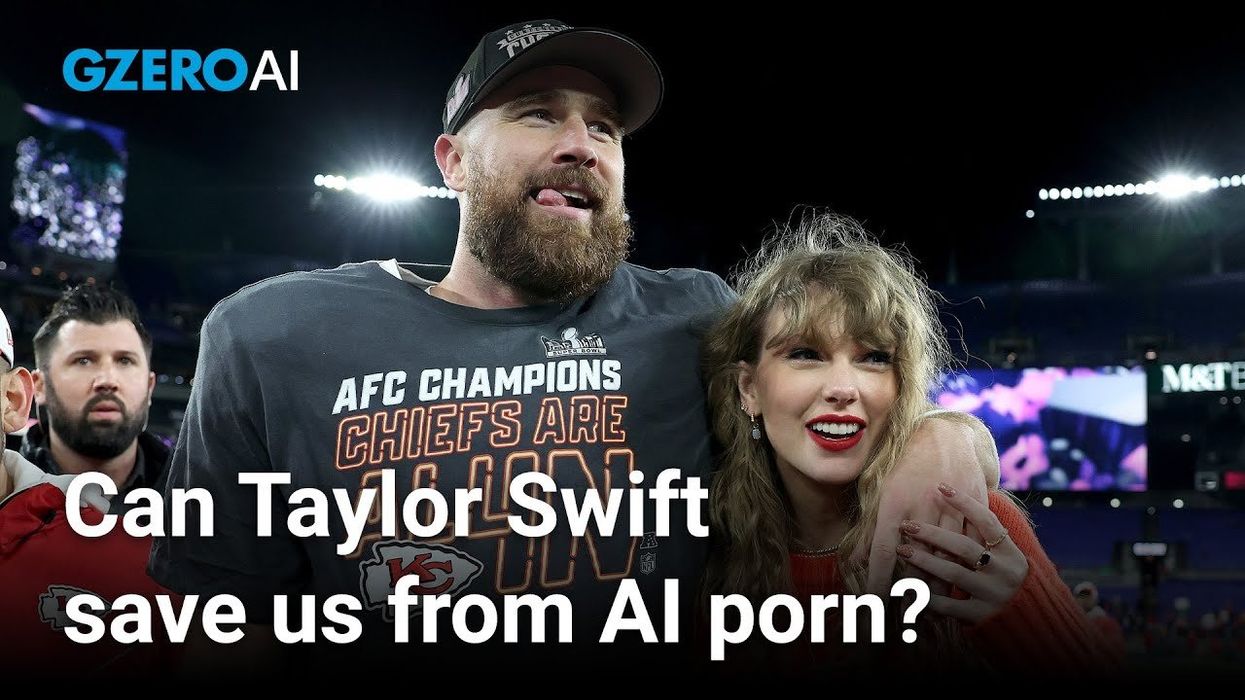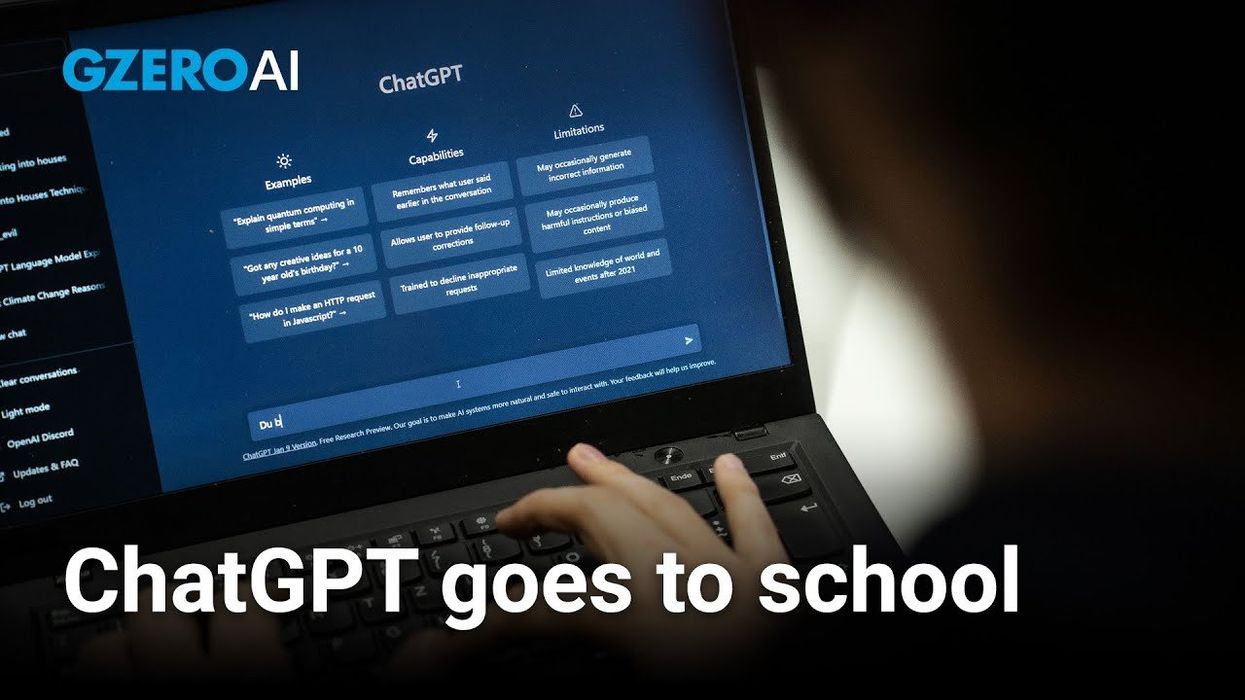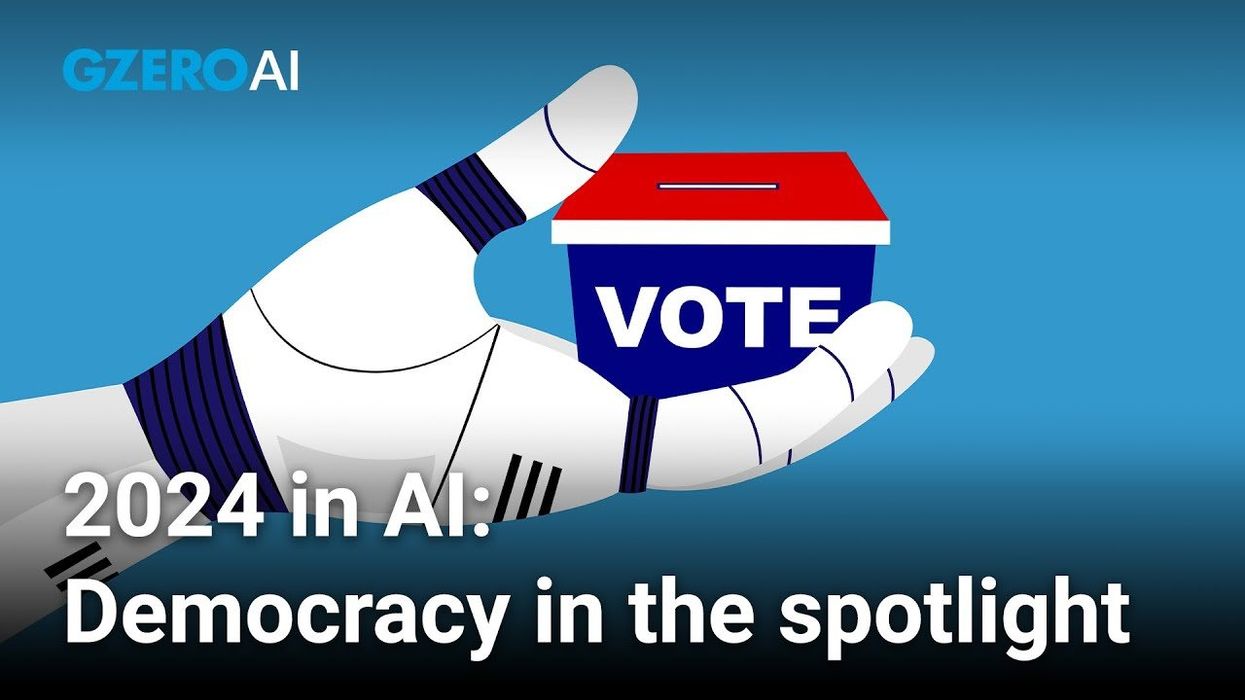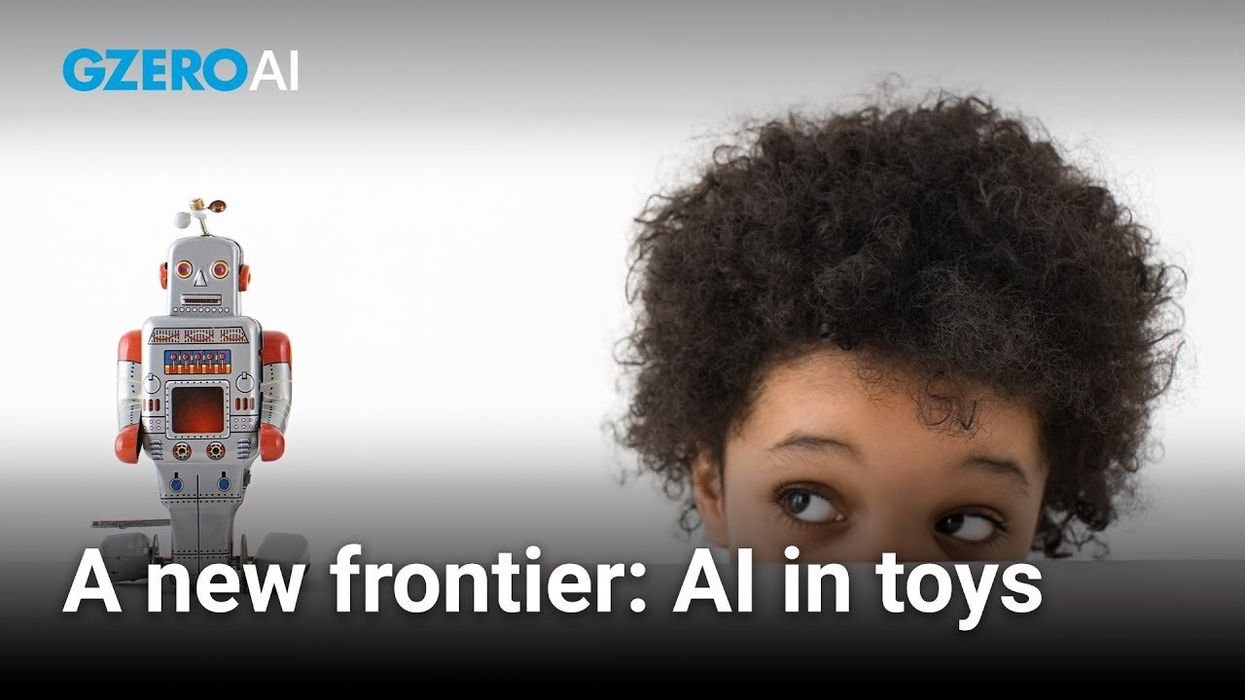VIDEOSGZERO World with Ian BremmerQuick TakePUPPET REGIMEIan ExplainsGZERO ReportsAsk IanGlobal Stage
Site Navigation
Search
Human content,
AI powered search.
Latest Stories
Sign up for GZERO Daily.
Get our latest updates and insights delivered to your inbox.
Global Stage: Live from Munich Feb 14th @12PM ET
WATCH
GZERO AI Video
GZERO AI is our weekly video series intended to help you keep up and make sense of the latest news on the AI revolution.
Presented by
In this episode of GZERO AI, Taylor Owen, professor at the Max Bell School of Public Policy at McGill University and director of its Centre for Media, Technology & Democracy, examines how Taylor Swift's plight with AI deepfake porn sheds light on the complexities of the information ecosystem in the biggest election year ever, which includes the US elections.
Okay, so full disclosure, I don't love the NFL and my ten-year-old son is more into Ed Sheeran than Taylor Swift, so she hasn't yet flooded our household. However, when one of the most famous people in the world is caught in a deepfake porn attack driven by a right-wing conspiracy theory, forcing one of the largest platforms in the world to shut down all Taylor Swift-related content, well, now you have my attention. But what are we to make of all this?
First thing I think is it shows how crazy this US election cycle is going to be. The combination of new AI capabilities, unregulated platforms, a flood of opaque super PAC money, and a candidate who's perfectly willing to fuel conspiracy theories means the information ecosystem this year is going to be a mess.
Second, however, I think we're starting to see some of the policy levers that could be pulled to address this problem. The Defiance Act, tabled in the Senate last week, gives victims of deepfakes the right to sue the people who created them. The Preventing Deepfakes of Intimate Images Act, stuck in the House currently, goes a step further and puts criminal liability on the people who create deepfakes.
Third, though, I think this shows how we need to regulate platforms, not just the AI that creates the deepfakes, because the main problem with this content is not the ability to create them, we've had that for a long time. It's the ability to disseminate them broadly to a large number of people. That's where the real harm lies. For example, one of these Taylor Swift videos was viewed 45 million times and stayed up for 17 hours before it was removed by Twitter. And the #TaylorSwiftAI was boosted as a trending topic by Twitter, meaning it was algorithmically amplified, not just posted and disseminated by users. So what I think we might start seeing here is a slightly more nuanced conversation about the liability protection that we give to platforms. This might mean that they are now liable for content that is either algorithmically amplified or potentially content that is created by AI.
All that said, I would not hold my breath for the US to do anything here. And probably, for the content regulations we may need, we're going to need to look to Europe, to the UK, to Australia, and this year to Canada.
So what should we actually be watching for? Well, one thing I would look for is how the platforms themselves are going to respond to what is both now an unavoidable problem, and one that has certainly gotten the attention of advertisers. When Elon Musk took over Twitter, he decimated their content moderation team. But Twitter's now announced that they're going to start rehiring one. And you better believe they're doing this not because of the threat of the US Senate but because of the threat of their biggest advertisers. Advertisers do not want their content but put aside politically motivated, deepfake pornography of incredibly popular people. So that's what I'd be watching for here. How are the platforms themselves going to respond to what is a very clear problem, in part as a function of how they've designed their platforms and their companies?
I'm Taylor Owen, and thanks for watching.
Keep reading...Show less
More from GZERO AI Video
Europe’s AI deepfake raid
March 04, 2025
AI's existential risks: Why Yoshua Bengio is warning the world
October 01, 2024
How is AI shaping culture in the art world?
July 02, 2024
How AI models are grabbing the world's data
June 18, 2024
Can AI help doctors act more human?
June 04, 2024
How neurotech could enhance our brains using AI
May 21, 2024
OpenAI is risk-testing Voice Engine, but the risks are clear
April 03, 2024
Should we regulate generative AI with open or closed models?
March 20, 2024
AI and Canada's proposed Online Harms Act
March 05, 2024
Gemini AI controversy highlights AI racial bias challenge
February 29, 2024
When AI makes mistakes, who can be held responsible?
February 20, 2024
AI & human rights: Bridging a huge divide
February 16, 2024
Will Taylor Swift's AI deepfake problems prompt Congress to act?
February 01, 2024
ChatGPT on campus: How are universities handling generative AI?
January 23, 2024
Davos 2024: AI is having a moment at the World Economic Forum
January 16, 2024
AI in 2024: Will democracy be disrupted?
December 20, 2023
New AI toys spark privacy concerns for kids
December 12, 2023
GZERO Series
GZERO Daily: our free newsletter about global politics
Keep up with what’s going on around the world - and why it matters.
